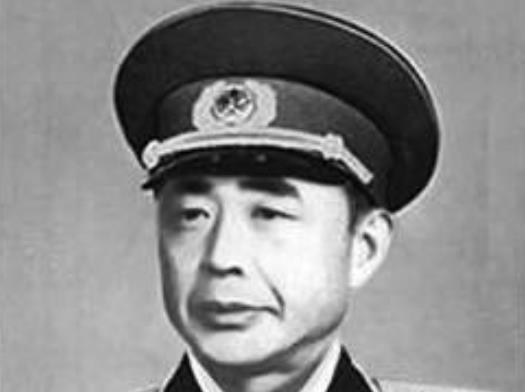On August 4, 1949, Chen Mingren, then deputy chief of the Office of the Military and Political Governor of Central China and chairman of Hunan Province, led an uprising, and Hunan was peacefully liberated. Before the uprising, Chen Mingren sent a telegram to Song Xilian, who was stationed in Enshi, and persuaded him to raise the banner of righteousness with him and jointly oppose Chiang Kai-shek. It is said that the uprising is a very confidential matter, the fewer people who know about it, the safer it is, moreover, Song Xilian is still a concubine of the old Jiang family, Chen Mingren called Song Xilian before the uprising, is he not afraid that he will inform the old Jiang?

Don't say, Chen Mingren is really not afraid. In addition to holding the army in his hands, he also signed Song Renchu's name at the end of the cable. Song Renchu was the eldest brother of Song Xilian, then the commissioner of the 5th Administrative Supervision District of Hunan and the commander of the security, he was ideologically progressive, had long been in contact with the Hunan underground party, and was very much in favor of Chen Mingren's uprising. It was with this relationship that Chen Mingren dared to call Song Xilian on the eve of the uprising and persuade him to revolt with him.
But Song Xilian rejected Chen Mingren's suggestion on the grounds that "the stakes are high", so why didn't he want to revolt? There are two main reasons for this. The first reason was that Song Xilian still had illusions about Old Jiang at that time. After the end of the three major battles, Lao Jiang's elite troops were almost completely lost, but still occupied several southwestern provinces, and nearly a million new troops were trained, and Song Xilian believed that Lao Jiang was still "able to fight a battle." In addition, at that time, Song Xilian had 140,000 troops in his hands, these troops had not yet been attacked by our army, and had a certain combat effectiveness, song Xilian believed that he still had the capital to compete with the People's Liberation Army.
The second reason was that Song Xilian was concerned about the uprising. Many of the senior generals of the Nationalist Army fought with our army during the Red Army period and the Liberation War, so it was normal to have concerns before the uprising. But Song Xilian's situation is more complicated, he once ordered the shooting of Qu Qiubai in June 1935, and friends familiar with history know how high Qu Qiubai once held a high position. Because of this, Song Xilian did not dare to rush into an uprising.
Soon after Song Xilian rejected Chen Mingren's proposal to jointly revolt, he was appointed by Chiang Kai-shek as the director of the Suijing Office of the Sichuan-Xiang'e Border Region, and led his troops to prevent the People's Liberation Army from advancing into the great southwest. However, at this time, the defeat of the Nationalist army had been decided, the soldiers had no fighting spirit, and Song Xilian was defeated in eastern Sichuan, and led his troops to retreat to the direction of Xichang. As a result, he was surrounded by our army at the Dadu River, Song Xilian drew his pistol in despair and tried to commit suicide, the guard platoon leader was quick in his eyes, and shot down his pistol, Song Xilian's soldiers were defeated and captured, and they were sent to Gongdelin for reform.
So the question is, if Song Xilian had agreed to revolt with Chen Mingren, what rank would he have been awarded when he was awarded the rank in 1955? Song Xilian joined our party when he was studying in the First Phase of Huangpu, and his introduction to the party at that time was Chen Geng. After the Zhongshan incident, Song Xilian broke off relations with our party and devoted himself to following Lao Jiang, serving as the commander of the 36th Division of the Nationalist Army and the commander of the Xi'an garrison. After the outbreak of the War of Resistance Against Japanese Aggression in an all-round way, Song Xilian successively led his troops to participate in the Battle of Songhu, the Battle of Nanjing, the Battle of Lanfeng, and the Expeditionary Force's overseas combat, and his performance was remarkable.
Because of his outstanding performance in the War of Resistance Against Japan, Song Xilian was successively awarded the Order of the Blue Sky and White Sun, the Order of Loyalty and Diligence and the Order of Palm Leaf Freedom, not only becoming a famous anti-Japanese general, but also known as the "Light of Huangpu". Song Xilian's seniority was not inferior to Chen Mingren's, and his position in the nationalist army was even higher than That of Chen Mingren. If he had revolted with Chen Mingren at that time, when he was awarded the title in 1955, referring to Chen Mingren, Dong Qiwu and Tao Zhiyue, Song Xilian would probably have also been awarded the rank of general. Unfortunately, due to the difference in thoughts, he did not revolt with Chen Mingren, and as a result, he was transformed in the Gongdelin for ten years, and Chen Mingren became the founding general.